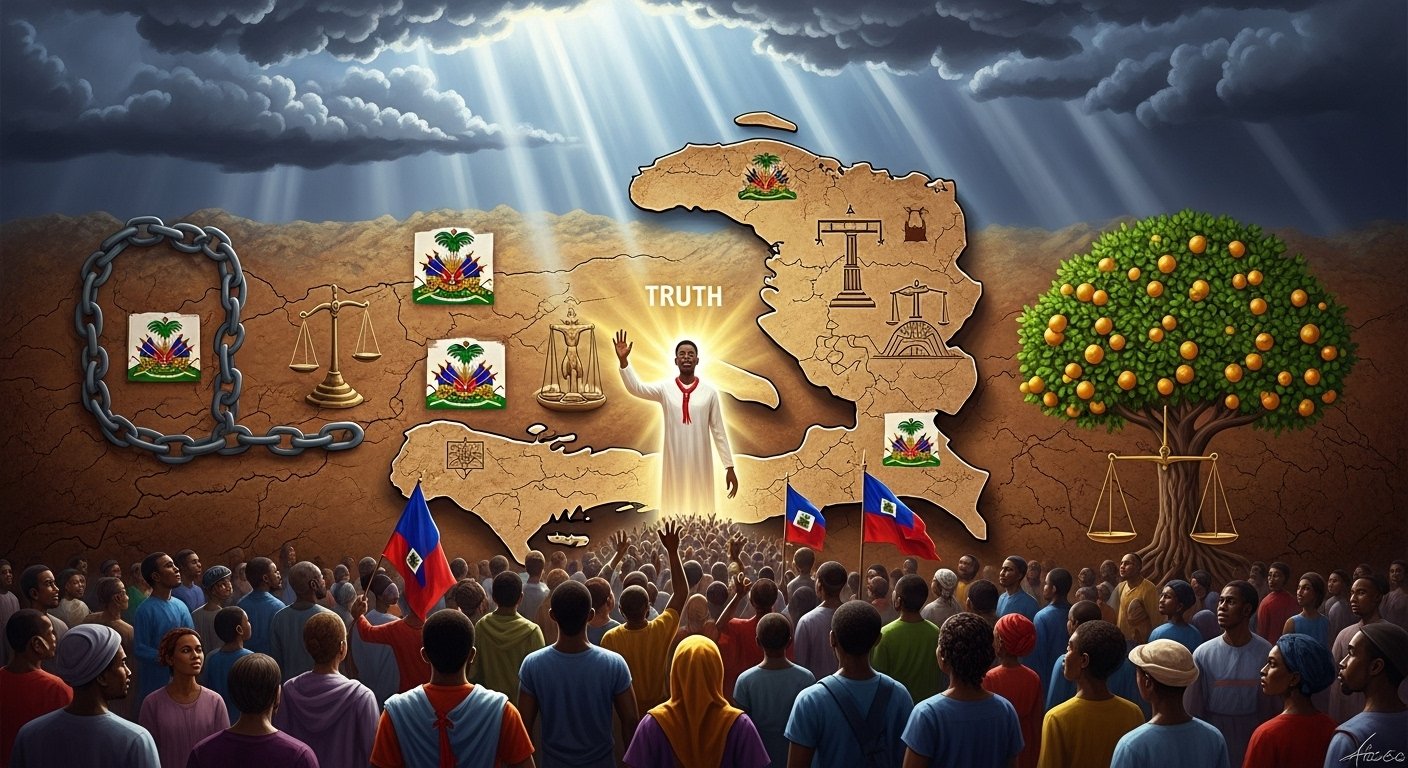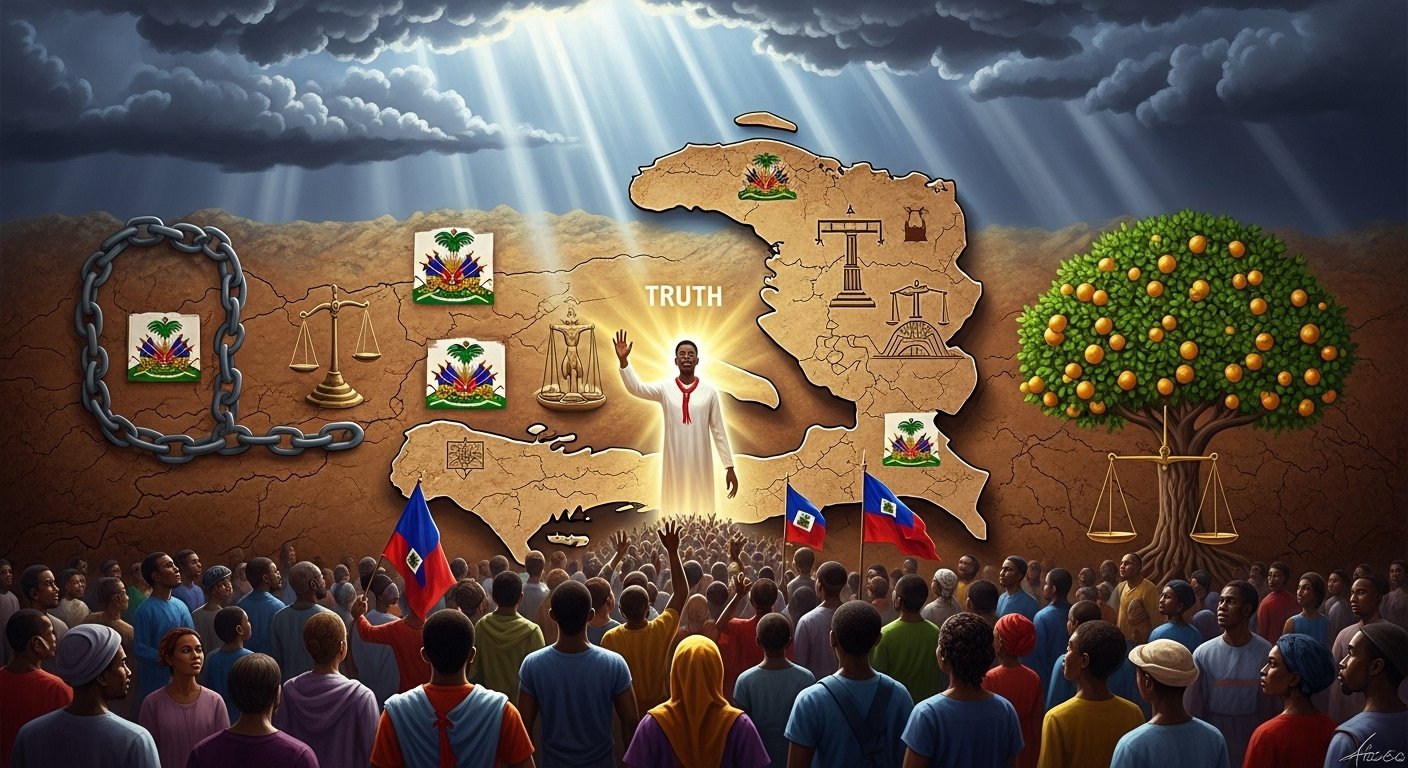Physical Address
304 North Cardinal St.
Dorchester Center, MA 02124
Physical Address
304 North Cardinal St.
Dorchester Center, MA 02124

Reviving Haiti’s Soul: Why Integrity Is Leadership’s Missing Key

Haiti stands as the world’s first Black republic, an enduring symbol of freedom, and a trailblazer in the fight against oppression. Rooted in its revolutionary origins, Haiti challenged the global systems of slavery and colonial rule, achieving independence in 1804. Yet, the road since liberation has been mired with challenges: foreign debt, imperial meddling, and internal governance issues have repeatedly stunted its potential. At the heart of these struggles lies a critical question—why do so many efforts toward progress seem to buckle under strain?
One crucial element seldom discussed is the role of integrity in leadership. Throughout Haiti’s post-revolution history, leaders who have risen to power often faced questions regarding their commitment to the wellbeing of citizens versus self-serving or external influences. The absence of unified moral conviction in governance has left the nation fragmented, while generations continue clamoring for systems grounded in transparency, justice, and accountability.
The focus here is not merely on restoring order but on recognizing integrity as a revolutionary act in itself. Leadership rooted in moral adherence could inspire the collective healing necessary to revive Haiti’s soul.
Integrity is more than fulfilling promises—it’s the alignment of actions with values, especially under pressure. Unfortunately, history illustrates how the betrayal of these principles has consistently undermined Haitian progress.
Take the turbulent periods following Haiti’s independence. Leaders like Emperor Jacques Dessalines proclaimed unity but were tragically consumed by factional tensions. Later figures such as the Duvaliers amplified this divide, ruling through tyranny while labeling dissent as disloyalty to the state. Over time, public trust eroded, with promises of emancipation in governance repeatedly crushed under exploitative agendas.
What’s more, international interference often exacerbated these dynamics. From the U.S. occupation in 1915 to neoliberal economic policies imposed during the late 20th century, foreign actors sought leaders who aligned with their interests rather than invested in Haiti’s long-term development. Consequently, leadership became a transactional exchange rather than a collaborative effort to uplift the Haitian populace.
In the absence of integrity, the onus of progress has frequently shifted from the hands of power to grassroots activists and everyday citizens—those who bear the brunt of failures yet continue to resist and fight for a brighter tomorrow.
Despite these chronic challenges, glimmers of hope exist in Haiti’s long legacy of resistance. Throughout its revolutionary and modern history, leaders driven by integrity have shaped transformative moments. Individuals like Toussaint Louverture governed with vision, blending tactical brilliance with sincere dedication to collective liberation. Louverture’s agenda, though contested, reflected a deep moral belief in the ability of Haitians to forge their destiny.
Today, these historic lessons must be reclaimed to counter perceptions of stagnancy and despair. Global institutions, the Haitian diaspora, and grassroots movements are calling for leaders who prioritize systemic change over fleeting power gains. This movement for integrity transcends individual charisma—it demands radical accountability, transparency, and a firm rejection of exploitation in all its modern forms.
Leadership in Haiti must function as a bridge, connecting revolutionary pasts to sustainable futures. It requires steady convictions that inspire solidarity and fortify the national spirit against the lingering disasters of exploitation—be it neocolonial tactics, climate crises, or corruption.
Haiti’s future doesn’t rest on political restructuring alone. Leadership that embodies integrity could spearhead national healing by prioritizing:

Integrity has always played an underappreciated role in Haiti’s resilience. Just as the revolution against colonialism rested on principles of human freedom, the present crisis demands leaders who embody those same convictions. It’s not enough to focus on external solutions—true change takes root when Haitians themselves believe that leadership is motivated by collective prosperity rather than fleeting personal gain.
Reviving Haiti’s soul will not happen overnight, but the seeds of integrity can cultivate the soil for long-lasting transformation. Leaders willing to redefine governance around shared values of honesty, accountability, and solidarity will lay the foundation for Haiti to rise again—not merely as a survivor but as a force that reclaims its revolutionary spirit.
FAQs: Understanding the Core Issues